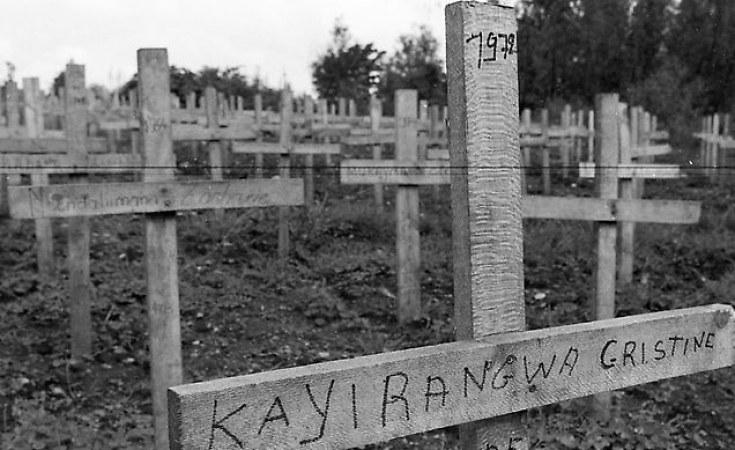A recent assessment study has revealed that Rwandans display high levels of resilience across multiple indicators, such as self-management and responsibility, critical thinking, healing from psychological trauma, hope and collaboration.
The study which involved thousands of participants was conducted by the Ministry of National Unity and Civic Engagement (MINUBUMWE) and Interpeace, an international peacebuilding organisation.
According to the study, 92 per cent of Rwandans share a sense of national identity, indicating a strong connection to a unified national identity even 30 years after the Genocide against the Tutsi that tore apart Rwanda's societal fabric.
Titled "Community-based Participatory Framework for the Assessment of Resilience in Rwanda," the study was carried out in all 30 districts of the country. Its primary goal was, to inform the development of resilience indicators that can be used for future research activities, policies, and programmes aimed at strengthening and consolidating community resilience.
It also aimed to create a participatory, multi-level methodology for assessing resilience indicators, drawing on existing frameworks, while tailoring them to the Rwandan context. Additionally, the study sought to establish a baseline for community resilience across all districts.
Jean-Damascène Bizimana, the Minister of National Unity and Civic Engagement, emphasised the importance of resilience as one of Rwanda's values. He stated: "We want to design programmes and initiatives that are guided by our cultural values, which will effectively address our specific problems.
"This research responds to this need. It will enable us to strengthen the resilience of Rwandans, to build a peaceful and prosperous country based on concrete and realistic indicators."
Frank Kayitare, the representative of Interpeace in Rwanda, underlined the significance of the study in informing the design of peacebuilding initiatives that address the real needs of the targeted population.
He said, "Interpeace's approach in Rwanda and elsewhere is to facilitate processes where peacebuilding interventions are locally designed and led, starting from the grassroots communities to the highest levels of decision-making.
"Therefore, research such as this, which identifies resilience factors and remaining fragilities within Rwandan society is crucial. It will enable the government and other stakeholders to better target their interventions for societal healing and community resilience."
Findings
Conducted with financial support from the Government of Sweden, the study involved a sample of 7,481 individuals. It evaluated resilience across four levels: individual, household, community, and institutional, using a set of 38 indicators.
The findings underscore a commendable degree of resilience across all assessed levels, demonstrating a significant milestone achieved three decades after the Genocide against the Tutsi.
At the individual level, Rwandans displayed resilience ranging between 75 and 87.5 per cent. Regarding the indicators of self-management and responsibility, healing of psychological trauma, and critical thinking and decision making, individuals displayed a performance of 75 per cent; 77.5 per cent, and 77.5 per cent, respectively.
On other indicators, individuals scored 80 per cent on emotional awareness and expression; 82.5 per cent on humility and willingness to learn; 82.5 per cent on hope and spirituality; 85 per cent on empathy, tolerance and forgiveness and 87.5 per cent on collaboration and negotiation.
ALSO READ: Interpeace's genocide trauma-healing initiatives promote social cohesion, reconciliation
At the level of household resilience, Rwandans displayed a performance of 74 to 84 per cent. On indicators such as the entrepreneurial mindset, intergenerational partnership within the household, access to sources of livelihood, and gender equality within the household, Rwandans scored 74 per cent.
Regarding responsive and authoritative parenting, and mechanisms to resolve family conflicts, Rwandan households displayed a performance of 78 per cent.
The study suggests that there is room for improvement in mechanisms to resolve family conflicts and the practice of responsive and authoritative parenting. This suggests the need for enhancing conflict resolution strategies and parenting skills within Rwandan households.
On the indicator of values-based family conversations, households scored 80 per cent, while they scored 84 per cent on the indicator of connection with other families.
ALSO READ: How 'Mvura Nkuvure' programme has enhanced cohesion, reconciliation
At the community level, the study found that Rwandans score 80 to 92 per cent in resilience. It revealed that a shared sense of national identity within Rwandans stands out with a high resilience score of 92 per cent, reflecting a strong connection to a unified national identity. Solidarity among community members and a shared vision for the future both scored 88 per cent, underscoring a strong sense of support, cohesion and common goals within communities.
According to the study findings, engagement in shared everyday community activities scored 86 per cent, indicating high resilience and suggesting increased opportunities for participation in communal activities.
"At the institutional level, resilience is generally high, reflecting a robust and well-structured system," the study states. Security institutions lead the way with the highest score of 94 per cent, underscoring Rwanda's commitment to maintaining a secure environment. Social-protection interventions also scored notably high 90 per cent, highlighting the country's dedication to supporting its vulnerable populations.
Shared economic institutions scored 88 per cent, while transformative local leadership, integrity of local leaders and institutions, comprehensive education services, programmes for societal healing and national unity, and the contribution of faith-based institutions and civil-society organisations all maintain a high level of resilience with a score of 86 per cent.
The study also pointed out factors of fragility at all assessed levels.
Factors that appeared frequently in all four assessed levels include poverty, some cases of corruption in local government structures, the mindset of dependence on government support, in addition to unhealed wounds resulting from the 1994 Genocide against the Tutsi and its aftermath.
Its recommendations emphasised the need for intensified efforts in societal healing initiatives, infrastructure development, and facilitating access to finance and employment opportunities to address identified fragilities.
The New Times understands that a comprehensive roadmap is being developed to guide the implementation of the findings and recommendations derived from the study. Once developed, the roadmap will serve as a strategic blueprint for all interventions by stakeholders involved in societal healing and resilience efforts.


